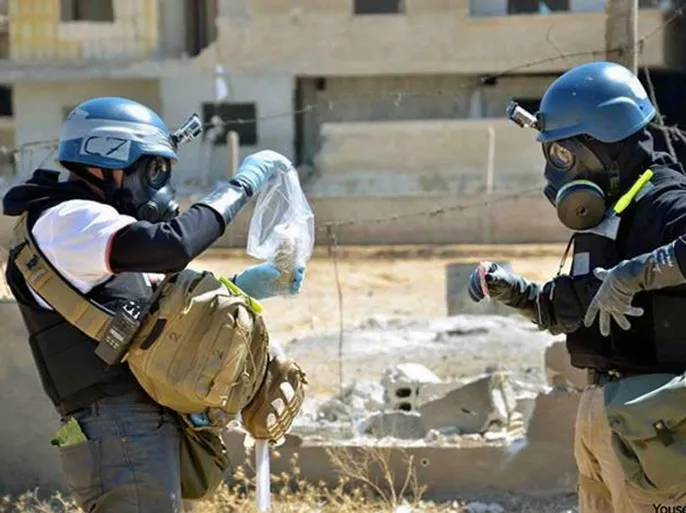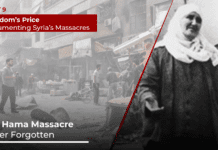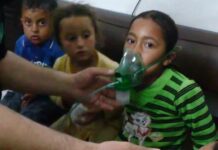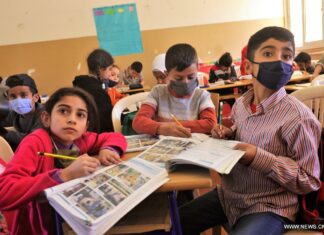
The issue of chemical weapons in Syria has resurfaced following the fall of the regime of Bashar al-Assad. The Organization for the Prohibition of Chemical Weapons (OPCW) estimates there are over 100 sites potentially linked to Assad’s chemical weapons program. These appraisals represent the first official assessment of their kind since the regime’s fall, as the organization seeks to evaluate the remaining threat from the chemical program.
An OPCW team visited Syria between March 12 and 21 to prepare for a mission to identify and destroy illegal Assad era stockpiles. On March 7, the UN High Representative for Disarmament Affairs, Izumi Nakamitsu, stated that the new political reality in Syria presents an opportunity to obtain long-awaited clarifications regarding the chemical weapons program, to rid the country of all such weapons, normalize relations with the OPCW, and ensure long-term compliance with the Chemical Weapons Convention. She confirmed that Syria “has begun taking steps towards this goal.”
Syria’s Openness for OPCW Cooperation
The Syrian administration affirmed its commitment to full cooperation with the OPCW to ensure this file is resolved definitively. On February 8, the Director-General of the OPCW, Ambassador Fernando Arias, visited Damascus at the invitation of the Syrian Foreign Minister, accompanied by a high-level delegation from the organization, to meet with President Ahmad al-Sharaa and Foreign Minister Asaad al-Shaibani.
In an effort to reassure the international community, Shaibani visited the OPCW headquarters in The Hague in March, announcing the government’s commitment to destroy remnants of the chemical program established by the previous regime and comply with international agreements.
OPCW Delegation visits Damascus
As part of Syrian government efforts to cooperate, Chief of Staff Major General Ali al-Nuasan received a delegation from the organization at the Ministry of Defense in Damascus. Both parties discussed ways to enhance cooperation and coordination between the Ministry and the organization in a manner serving their mutual commitments while promoting transparency and mutual understanding.
Emergency and Disaster Minister Raed al-Saleh and OPCW delegation head Nihad Ali Koufichi discussed ways to enhance joint cooperation and support efforts to eliminate chemical weapons in Syria. Both sides emphasized the necessity of working together to protect civilians and prevent any recurrence of chemical weapon use.
Minister of Health Dr. Musab al-Ali also met Koufichi’s delegation to discuss ways to provide support and assistance to Syria’s health sector. Both sides stressed the importance of enhancing cooperation, especially after expressing the organization’s desire to open a dedicated office in Damascus, hoping to achieve justice in Syria in the upcoming phase.
Dr. Ali confirmed that the ministry is working intensively to rehabilitate and restore the devastated infrastructure of the health sector. For his part, Koufichi clarified that the OPCW’s primary mission is to uncover and destroy chemical weapons sites, pointing out that the Assad regime used dangerous chemical weapons in 2013. The international community hopes that current efforts will contribute to uncovering the truth and bringing those responsible for the use of these weapons to justice.








